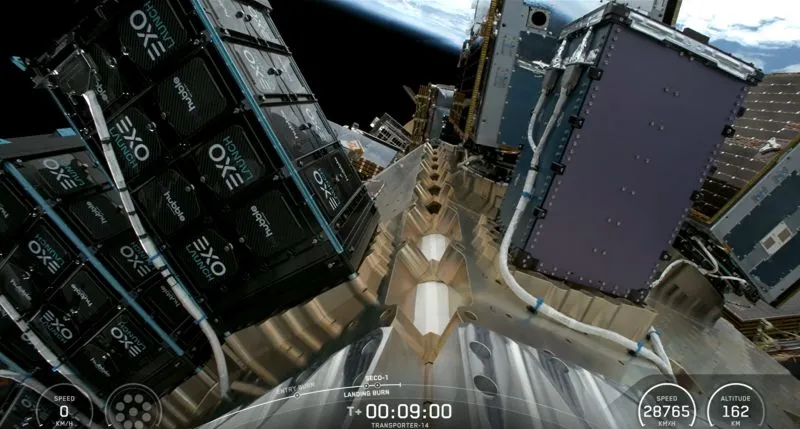Published by SpaceAutonomy.ai, June 29, 2025
The age of off-world manufacturing has officially begun. In a groundbreaking step forward for space autonomy and high-performance computing, UK-based startup Space Forge successfully deployed its ForgeStar-1 satellite into low Earth orbit aboard a SpaceX Transporter-14 rideshare mission. This pioneering platform aims to explore the potential of manufacturing semiconductors in the harsh, pristine conditions of space—an initiative that could revolutionize the future of AI data centers, quantum computing, and defense-grade electronics.
Why It Matters
ForgeStar-1 is the UK’s first in-space manufacturing satellite, a fully domestically designed and built system originating from Cardiff, Wales. This mission represents a bold proof-of-concept: that the vacuum of space and sub-zero temperatures can produce superior semiconductor materials compared to terrestrial methods.
For sectors like artificial intelligence, military systems, and quantum processing—where performance gains hinge on increasingly advanced chip architectures—this could be a game-changer.
The Tech Behind ForgeStar-1
While the satellite has not yet begun active manufacturing, it will serve as a technology demonstrator for the many systems Space Forge has engineered, including:
- “Space-derived crystal seeds” for high-purity semiconductor growth
- On-orbit forge systems leveraging the natural vacuum and extreme thermal conditions
- Reentry systems such as the Pridwen heat shield, designed to guide future satellites and cargo safely back to Earth
Although ForgeStar-1 won’t return any manufactured components, it lays the groundwork for future missions. The company has already planned ForgeStar-2, which will mark the first attempt to fabricate and return semiconductors at scale. Their goal? To ensure the economic return of space-based chip manufacturing outweighs the cost of launch and operation.
Toward Autonomous Orbital Factories
ForgeStar-1 is part of a longer roadmap toward scalable in-space fabrication. Space Forge envisions producing 10–12 reusable satellites per year, each capable of short-run manufacturing cycles lasting between one and six months. Eventually, the company aims to surpass 100 autonomous launches annually, establishing a commercial architecture for regular, low-orbit fabrication of next-gen computing components.
The implications for global supply chains, national security, and energy-efficient high-performance computing are profound. If successful, this model could shift advanced chip production away from Earth-bound foundries—mitigating geopolitical risks and unlocking a new frontier of capability for allied nations.
From SpaceAutonomy.ai’s Perspective
ForgeStar-1 represents more than a single technological experiment; it’s a strategic inflection point. As nations look to secure semiconductor independence and drive the next wave of AI and quantum breakthroughs, orbital manufacturing offers a compelling edge. The convergence of private launch capabilities (e.g., SpaceX), precision materials science, and autonomous spacecraft is redefining how we think about industrial capacity in orbit.
We’ll be tracking ForgeStar-1’s mission closely—and even more so, the deployment of its successors. Space autonomy is no longer theoretical. It’s igniting—literally—in low Earth orbit.
